Social-Political Issues
 |
 |
 |
 |
 |
 |
 |
Council for Inclusive Capitalism - II
Inclusive Capitalism & Pan-Religion
In the last article, we looked into the background and socialist principles behind the Council for Inclusive Capitalism (CIC), which is the latest global socio-economic initiative set into motion by Pope Francis, and whose groundwork was laid out by Pope Benedict, following the general policy of Conciliar Popes. In this article, we will examine the pan-religious nature of this Council and its strange terminology, showing how it fits in perfectly with the revolutionary plan for a One World Order.
A vague ‘morality’
On the CIC’s website, there is always an omnipresent vaguely religious reminder that adherence to Inclusive Capitalism is a “ moral imperative”:
“The work of the Council for Inclusive Capitalism and its members is grounded in the moral and market imperative to pursue profit in ways that lead to a more inclusive and sustainable economy... We recognize that religious and ethical leaders provide vital guidance on the moral imperative to act. We also recognize that the work of Inclusive Capitalism belongs to each of us, regardless of where we come from or what we believe. That’s why the Council for Inclusive Capitalism was founded as non-sectarian organization that is open to members of all — or no — religious backgrounds. We invite everyone to join us, be inspired by the moral imperative, and take action for a more inclusive and sustainable Capitalism.”
What is this vague moral imperative they speak of? It is certainly not Catholic Morals, but rather a nebulous “morality” and “ethics” founded on a modernist pan-religiosity. This impression increases when one peruses the CIC’s “Moral Imperative” page, which features quotes from prominent religious leaders, including Pope Francis, a rabbi, an imam and other “contributed wisdom from faith leaders.”
On a short post titled “Every Movement that Lasts Has a Moral Foundation,” Council CEO Meredith Sumpter explains:
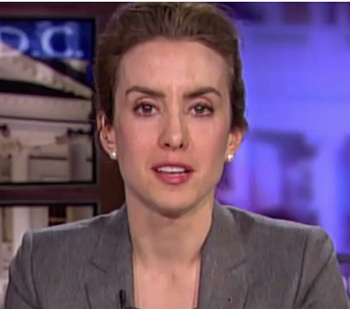 “The Council for Inclusive Capitalism is a secular organization that draws inspiration from faith and ethical leaders who challenge us to do more and be more as leaders. Our community was founded as an answer to Pope Francis’s call to action, though our members come from diverse backgrounds and faith traditions. Some claim no faith tradition at all, though all members recognize
the moral and market imperative we have as business leaders to take action for economies to be inclusive and sustainable. ...
“The Council for Inclusive Capitalism is a secular organization that draws inspiration from faith and ethical leaders who challenge us to do more and be more as leaders. Our community was founded as an answer to Pope Francis’s call to action, though our members come from diverse backgrounds and faith traditions. Some claim no faith tradition at all, though all members recognize
the moral and market imperative we have as business leaders to take action for economies to be inclusive and sustainable. ...
“Members of the Council for Inclusive Capitalism agree to take action or share resources in line with our Guiding Principles, which are grounded in the common teachings of all the great faiths. ... Council for Inclusive Capitalism members are provided access to guidance from faith-based and ethical leaders from a variety of backgrounds, including through the Council’s partnership with Religions for Peace, the world’s most representative multi-religious leadership coalition. Whether engaging with Vatican or Church of England leaders, or moral guides from Sunni and Shiite Islam, Judaism, Hinduism, Buddhism, or indigenous faiths, the Council provides pathways for everyone to moral inspiration that can be so important to reforming established harmful approaches to practicing Capitalism.”
It is clear that the Council’s goal is to establish a global, pan-religious and socialist regime under the United Nations and World Economic Forum. They have admitted the latter here:
“Our members’ actions are tied to the 17 UN Sustainable Development Goals and the World Economic Forum’s four sustainable value creation pillars: People, Planet, Prosperity and Principles of Governance.”
Later we will look more closely into the CIC’s implementation of the UN’s economic goals, but notice that in this last excerpt, Sumpter reveals the Council’s partnership with and receives guidance from the international pan-religious organization called “Religions for Peace.” Let us take a closer look at this organization.
A pan-religious group, inspired by the UN
One of the few videos released by the CIC is an interview with Prof. Azza Karam, who is the Secretary General for Religions for Peace since August of 2019. Religions for Peace (RFP) is an international pan-religious NGO that seeks to implement the UN’s Sustainable Development Goals. Karam has had deep involvement with the UN, and was one of its top officials in various pan-religious initiatives.
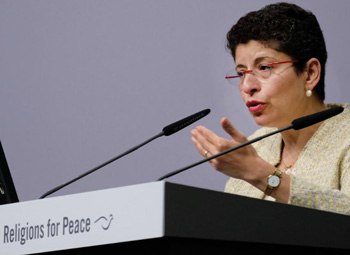 Karam admits that RFP was founded with “almost exactly the same mission as the UN, that is, to bring the world’s people together to secure peace, peace not just the absence of conflict, but peace in the sense of human dignity, restored and equal between all.” This is the same pacifist pan-religious utopia
Paul VI praised in his October 4, 1965, address to the UN, and longed for by other Conciliar Popes.
Karam admits that RFP was founded with “almost exactly the same mission as the UN, that is, to bring the world’s people together to secure peace, peace not just the absence of conflict, but peace in the sense of human dignity, restored and equal between all.” This is the same pacifist pan-religious utopia
Paul VI praised in his October 4, 1965, address to the UN, and longed for by other Conciliar Popes.
The RFP is “accredited to the United Nations.” It is unclear whether they mean they are officially recognized by the UN (they have at least collaborated with the UN), or that they attribute the inspiration of their organization to the UN. In any case, the lack of clarity is something we get used to the more we learn about the CIC...
Value, values, value-based
Both Sumpter and Karam use vaguely religious-sounding terms to emphasize the “moral imperative” for Inclusive Capitalism. These vague terms include the aforementioned “morality” and “ethics,” but also “value,” “values” and “value-based,” the latter three of which take on many meanings in the interview, often intermixing:
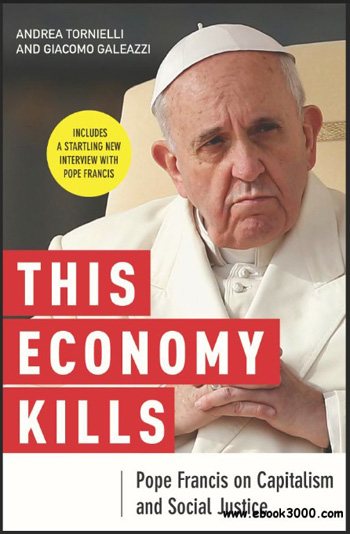 “Value” is taken to mean the inherent worth of an entity, be it an individual, group, company, stakeholder, or products and services. Of course, something that is not said but understood is that this ambiguous “value” or worth is defined and regulated by the CIC and ultimately, the United Nations. Sumpter stated at the 8:45 mark that CIC members (companies of the private sector) must work pan-religiously with government (behind-the-scenes of course) to create “broad-based value”:
“Value” is taken to mean the inherent worth of an entity, be it an individual, group, company, stakeholder, or products and services. Of course, something that is not said but understood is that this ambiguous “value” or worth is defined and regulated by the CIC and ultimately, the United Nations. Sumpter stated at the 8:45 mark that CIC members (companies of the private sector) must work pan-religiously with government (behind-the-scenes of course) to create “broad-based value”:
“The Council for Inclusive Capitalism, as a non-sectarian organization, we came together being inspired by the challenge of that one faith leader, Pope Francis, who challenged leaders of industry and economy and his message to us was this: ‘if Capitalism is going to change, if we’re going to have the economies that place human dignity and the needs of people sustainably at the core of what we do, that it really is up to leaders of the private sector.’
“We must not wait for the perfect rules and regulations to come from the public sector [government], but rather we must act, often in concert with the public sector, as we are taking our companies from just profit-creating centers to creating more broad-based value that is profitable but in ways that meet the needs of people and our planet. And I think that message really resonates with everyone, regardless of whether you subscribe to a faith or ethical tradition at all, and our members at the Council come from all different backgrounds, but I think what’s important here is that Council members all recognize our moral obligation to one another as human beings, which I think reflects the message of human dignity which you [Karam] spoke so eloquently to.”
Here, the listener is treated to a heavy dose of pan-religious and masonic talk of universal brotherhood, with “value” being the worth that falls in line with that idea.
“Values” are the pan-religious global set of “virtues” or ethical actions established by the United Nations/international Masonry, such as “fairness, trust, responsibility and sustainibility” (cited by Sumpter at the 10:30 mark). Sumpter gives her gnostic (1) explanation of this at the 15:10 mark: “All of the great faiths and ethical traditions have values that are resonant with one another and that are certainly resonant across the Guiding Principles of the CIC.”
“Value-based” is when a company adheres to the “values” explained above. Those who do not adhere to these “values” are called “value-less.” Karam explains:
“Value-less economies and value-less politics affirm not the rule of law, not the rule of common decency, but they affirm injustices and discrimination and, ultimately, loss of value, and that means a loss of profit. So not to engage with our values when the going gets tough is to disengage from our values, which means we basically run amok, we’re there [Karam points her hand far away from her], there’s nothing, it then becomes not the rule of the law, but it becomes the rule of the jungle, might makes right... being value-based is to achieve more profit, it’s more profitable to be value-based and to be seen as value-based... To be value-based is a token of credibility, of legitimacy and, ultimately, a winning ticket to making more money. Being value-based is a means of securing and ensuring profit, because it is your image, it is your Credo.”
New set of pan-religious ‘virtues’ & ‘vices’
From these texts, we can glean the CIC’s new set of “virtues” and “vices.”
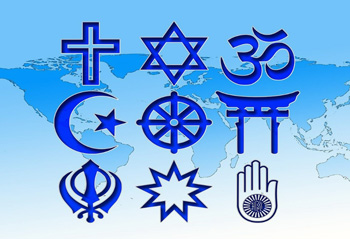 Their four “cardinal virtues” mentioned earlier are:
Their four “cardinal virtues” mentioned earlier are:
Frontal denial of extra Ecclesiam nulla salus
Karam lays out the belief shared by her and the CIC that religions must “come together” (she affirms at the 18:48 mark while making an interlocking gesture with her hands). At the 14:30 mark, Karam aggressively states:
“We are not just talking about being a good Hindu, or being a good Muslim, or being a good Christian. The whole point here is that our world is so intimately, intricately interconnected that one religion on its own, no matter how pure its adherents, no matter how remarkable its service, will not be enough.”
Sumpter makes it clear that the CIC not only fully endorses, but promotes RFP. This is what she says at the 16:38 mark:
“It’s with partnerships with organizations like Religions for Peace that the Council aims to provide our members access to moral guidance so that they have an important grounding foundation from which to respond to the social, economic and environmental challenges of our times, in the way that they practice Capitalism.”
So, here we have one of the goals of the CIC, blessed by Pope Francis: to form a global, syncretist, pan-religious council, working behind the scenes with governments to accept to be under the hegemony of the United Nations. In other words: a Universal Republic or One World Order in which the private sector (businesses) would take the lead. This conveniently fits in with the Masonic plan to establish a Universal Republic and a Pan-Religion. As mentioned in my previous article, all this was outlined by Pope Benedict XVI in his encyclical, Caritas in veritate.
This should shock and outrage Catholics, who for the most part seem to have ignored this new initiative by Pope Francis. It is a frontal denial of our Faith, blessed and prepared for a long time by the authorities of the Conciliar Church.
To be continued

A vague ‘morality’
On the CIC’s website, there is always an omnipresent vaguely religious reminder that adherence to Inclusive Capitalism is a “ moral imperative”:
“The work of the Council for Inclusive Capitalism and its members is grounded in the moral and market imperative to pursue profit in ways that lead to a more inclusive and sustainable economy... We recognize that religious and ethical leaders provide vital guidance on the moral imperative to act. We also recognize that the work of Inclusive Capitalism belongs to each of us, regardless of where we come from or what we believe. That’s why the Council for Inclusive Capitalism was founded as non-sectarian organization that is open to members of all — or no — religious backgrounds. We invite everyone to join us, be inspired by the moral imperative, and take action for a more inclusive and sustainable Capitalism.”
What is this vague moral imperative they speak of? It is certainly not Catholic Morals, but rather a nebulous “morality” and “ethics” founded on a modernist pan-religiosity. This impression increases when one peruses the CIC’s “Moral Imperative” page, which features quotes from prominent religious leaders, including Pope Francis, a rabbi, an imam and other “contributed wisdom from faith leaders.”
On a short post titled “Every Movement that Lasts Has a Moral Foundation,” Council CEO Meredith Sumpter explains:

Meredith Sumpter, CEO of the CIC
“Members of the Council for Inclusive Capitalism agree to take action or share resources in line with our Guiding Principles, which are grounded in the common teachings of all the great faiths. ... Council for Inclusive Capitalism members are provided access to guidance from faith-based and ethical leaders from a variety of backgrounds, including through the Council’s partnership with Religions for Peace, the world’s most representative multi-religious leadership coalition. Whether engaging with Vatican or Church of England leaders, or moral guides from Sunni and Shiite Islam, Judaism, Hinduism, Buddhism, or indigenous faiths, the Council provides pathways for everyone to moral inspiration that can be so important to reforming established harmful approaches to practicing Capitalism.”
It is clear that the Council’s goal is to establish a global, pan-religious and socialist regime under the United Nations and World Economic Forum. They have admitted the latter here:
“Our members’ actions are tied to the 17 UN Sustainable Development Goals and the World Economic Forum’s four sustainable value creation pillars: People, Planet, Prosperity and Principles of Governance.”
Later we will look more closely into the CIC’s implementation of the UN’s economic goals, but notice that in this last excerpt, Sumpter reveals the Council’s partnership with and receives guidance from the international pan-religious organization called “Religions for Peace.” Let us take a closer look at this organization.
A pan-religious group, inspired by the UN
One of the few videos released by the CIC is an interview with Prof. Azza Karam, who is the Secretary General for Religions for Peace since August of 2019. Religions for Peace (RFP) is an international pan-religious NGO that seeks to implement the UN’s Sustainable Development Goals. Karam has had deep involvement with the UN, and was one of its top officials in various pan-religious initiatives.

Prof. Azza Karam General Secretary of
Religions for Peace
The RFP is “accredited to the United Nations.” It is unclear whether they mean they are officially recognized by the UN (they have at least collaborated with the UN), or that they attribute the inspiration of their organization to the UN. In any case, the lack of clarity is something we get used to the more we learn about the CIC...
Value, values, value-based
Both Sumpter and Karam use vaguely religious-sounding terms to emphasize the “moral imperative” for Inclusive Capitalism. These vague terms include the aforementioned “morality” and “ethics,” but also “value,” “values” and “value-based,” the latter three of which take on many meanings in the interview, often intermixing:

Francis constant attacks against Capitalism led the CIC to conceive a Socialism disguised as Capitalism
“The Council for Inclusive Capitalism, as a non-sectarian organization, we came together being inspired by the challenge of that one faith leader, Pope Francis, who challenged leaders of industry and economy and his message to us was this: ‘if Capitalism is going to change, if we’re going to have the economies that place human dignity and the needs of people sustainably at the core of what we do, that it really is up to leaders of the private sector.’
“We must not wait for the perfect rules and regulations to come from the public sector [government], but rather we must act, often in concert with the public sector, as we are taking our companies from just profit-creating centers to creating more broad-based value that is profitable but in ways that meet the needs of people and our planet. And I think that message really resonates with everyone, regardless of whether you subscribe to a faith or ethical tradition at all, and our members at the Council come from all different backgrounds, but I think what’s important here is that Council members all recognize our moral obligation to one another as human beings, which I think reflects the message of human dignity which you [Karam] spoke so eloquently to.”
Here, the listener is treated to a heavy dose of pan-religious and masonic talk of universal brotherhood, with “value” being the worth that falls in line with that idea.
“Values” are the pan-religious global set of “virtues” or ethical actions established by the United Nations/international Masonry, such as “fairness, trust, responsibility and sustainibility” (cited by Sumpter at the 10:30 mark). Sumpter gives her gnostic (1) explanation of this at the 15:10 mark: “All of the great faiths and ethical traditions have values that are resonant with one another and that are certainly resonant across the Guiding Principles of the CIC.”
“Value-based” is when a company adheres to the “values” explained above. Those who do not adhere to these “values” are called “value-less.” Karam explains:
“Value-less economies and value-less politics affirm not the rule of law, not the rule of common decency, but they affirm injustices and discrimination and, ultimately, loss of value, and that means a loss of profit. So not to engage with our values when the going gets tough is to disengage from our values, which means we basically run amok, we’re there [Karam points her hand far away from her], there’s nothing, it then becomes not the rule of the law, but it becomes the rule of the jungle, might makes right... being value-based is to achieve more profit, it’s more profitable to be value-based and to be seen as value-based... To be value-based is a token of credibility, of legitimacy and, ultimately, a winning ticket to making more money. Being value-based is a means of securing and ensuring profit, because it is your image, it is your Credo.”
New set of pan-religious ‘virtues’ & ‘vices’
From these texts, we can glean the CIC’s new set of “virtues” and “vices.”

CIC as well as the UN require a syncretist Pan-Religion to serve the One World Order
- “Fairness” - a radical communist equality:
equality of outcomes (called equity) and equality of opportunity;
- “Trust” - transparency through company disclosure in order to prove obedience to the CIC’s diktats;
- “Responsibility” - putting the CIC’s diktats into action;
- “Sustainability” - commitment to the UN’s sustainable development goals.
Frontal denial of extra Ecclesiam nulla salus
Karam lays out the belief shared by her and the CIC that religions must “come together” (she affirms at the 18:48 mark while making an interlocking gesture with her hands). At the 14:30 mark, Karam aggressively states:
“We are not just talking about being a good Hindu, or being a good Muslim, or being a good Christian. The whole point here is that our world is so intimately, intricately interconnected that one religion on its own, no matter how pure its adherents, no matter how remarkable its service, will not be enough.”
Sumpter makes it clear that the CIC not only fully endorses, but promotes RFP. This is what she says at the 16:38 mark:
“It’s with partnerships with organizations like Religions for Peace that the Council aims to provide our members access to moral guidance so that they have an important grounding foundation from which to respond to the social, economic and environmental challenges of our times, in the way that they practice Capitalism.”
So, here we have one of the goals of the CIC, blessed by Pope Francis: to form a global, syncretist, pan-religious council, working behind the scenes with governments to accept to be under the hegemony of the United Nations. In other words: a Universal Republic or One World Order in which the private sector (businesses) would take the lead. This conveniently fits in with the Masonic plan to establish a Universal Republic and a Pan-Religion. As mentioned in my previous article, all this was outlined by Pope Benedict XVI in his encyclical, Caritas in veritate.
This should shock and outrage Catholics, who for the most part seem to have ignored this new initiative by Pope Francis. It is a frontal denial of our Faith, blessed and prepared for a long time by the authorities of the Conciliar Church.
- It is well-known that one of the doctrines of Gnosis as well as of Progressivism is that all the world’s religions are spheres of energy, that need to come together in a continuous evolution in order to form a pan-religion, which some progressivists blasphemously call the “Unam Sanctam".
To be continued

Posted January 9, 2023
______________________
______________________
 Volume I |
 Volume II |
 Volume III |
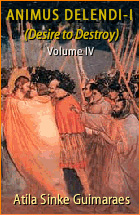 Volume IV |
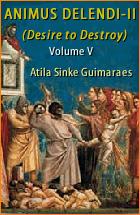 Volume V |
 Volume VI |
 Volume VII |
 Volume VIII |
 Volume IX |
 Volume X |
 Volume XI |
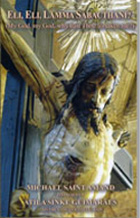 Special Edition |


